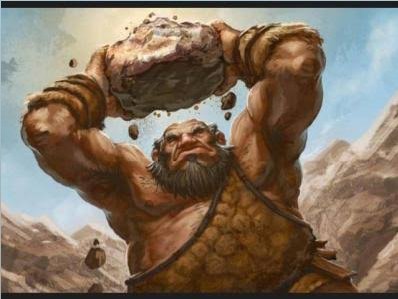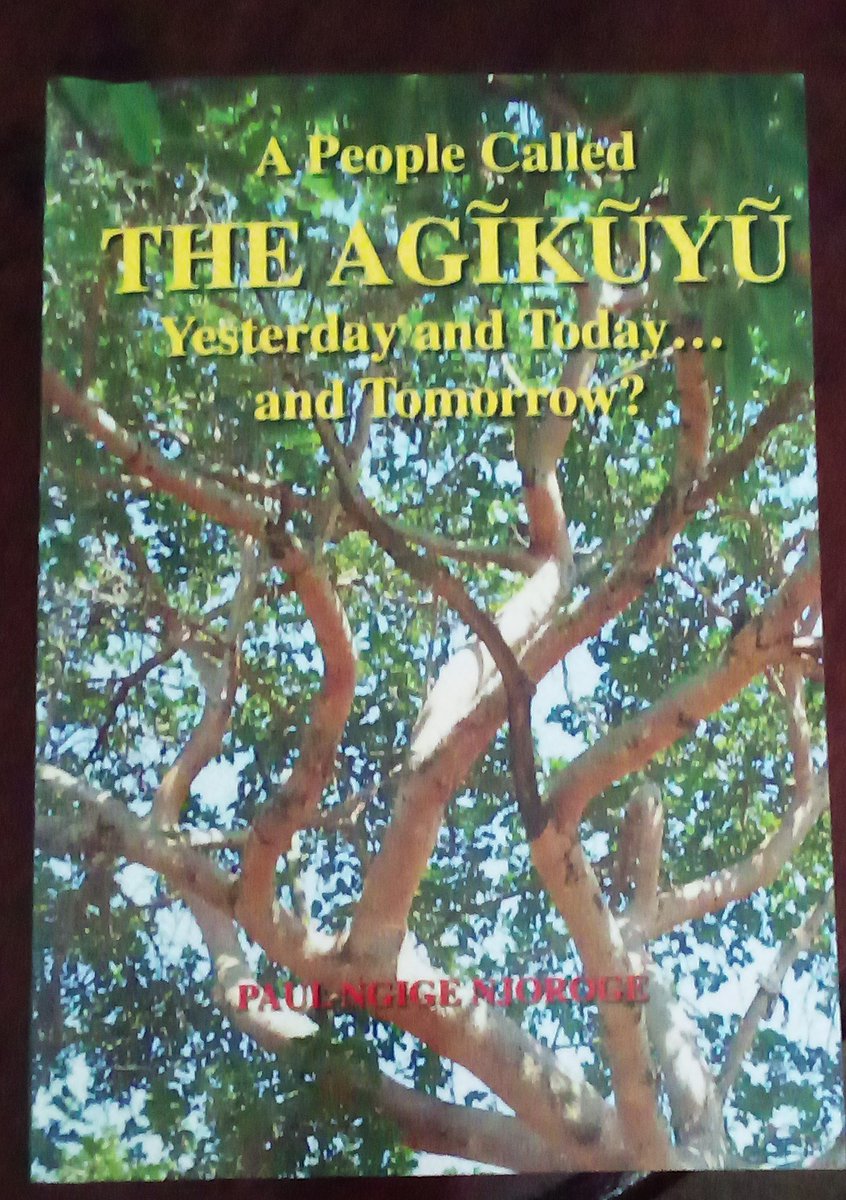
Learn, re-learn, unlearn that Among the Agìkūyū, there lived a great Medicine Man ( Mūndū mūgo) called Waing'a. But his soon changed and in a song, he was labeled saitani... 

WAING'A
ᴺᵈᵃʰᵘ̂ⁿʸᵘ̂ᵏᶦ̂ᵗᵉ ⁿᵍᶦᵘᵐᵃ ᵏʷᵃ ʷᵃᶦⁿᵍ'ᵃ ײ
ᴺʲᵉᶜū ᴬᵏiⁿʲᵒʸᵃ,ᴬᵍᶦ̂ᵗʰᵃᵐᵇᶦᵃ ʷᵉᵍᵃ,
ᴬᵏᶦ̂ʰᵃᵏᵃ ᵐᵃᵍᵘᵗᵃ, ᴬᵏᶦ̂ʰᵘᵐᵇᵃ ⁿᵍᵘᵒ ʸᵒʰᵒⁿᵒᵏᶦᵒᵒᵒ.ᴷʷᵃ ʷᵃᶦⁿᵍ'ᵃ ⁿᵈᶦᵍᵃᶜᵒᵏᵃ.
Gʷᵃᵏᵉ ʳᶦ̂ⁿᵍᶦ̂ ⁿᵈᶦᵍᵃᶜᵒᵏᵃa
ᴺᵈᵃʰᵘ̂ⁿʸᵘ̂ᵏᶦ̂ᵗᵉ ⁿᵍᶦᵘᵐᵃ ᵏʷᵃ ʷᵃᶦⁿᵍ'ᵃ ײ
ᴺʲᵉᶜū ᴬᵏiⁿʲᵒʸᵃ,ᴬᵍᶦ̂ᵗʰᵃᵐᵇᶦᵃ ʷᵉᵍᵃ,
ᴬᵏᶦ̂ʰᵃᵏᵃ ᵐᵃᵍᵘᵗᵃ, ᴬᵏᶦ̂ʰᵘᵐᵇᵃ ⁿᵍᵘᵒ ʸᵒʰᵒⁿᵒᵏᶦᵒᵒᵒ.ᴷʷᵃ ʷᵃᶦⁿᵍ'ᵃ ⁿᵈᶦᵍᵃᶜᵒᵏᵃ.
Gʷᵃᵏᵉ ʳᶦ̂ⁿᵍᶦ̂ ⁿᵈᶦᵍᵃᶜᵒᵏᵃa
This is a song from a historical moment in Gîkûyû history.
The year is 1889, where Tumutumu mission stands today, you can only see a medicine man's hut (Waing'a).
In previous years, his compound wouldn't be as full as it is today. Many people know natural herbs,
The year is 1889, where Tumutumu mission stands today, you can only see a medicine man's hut (Waing'a).
In previous years, his compound wouldn't be as full as it is today. Many people know natural herbs,
and the diseases they cure/remedy so visiting a medicine man is a last resort.
But today, the compound is full. It has been this full for a few weeks or so ago, and it might continue to be this full for several months to come.
But today, the compound is full. It has been this full for a few weeks or so ago, and it might continue to be this full for several months to come.
There is a strange disease in the land. A disease the Gîkûyû nation hasn't seen before. If this disease gets to you, your skin gets itchy, hot, and it develops rashes. People have called it Mûhare.
Story goes that if you get this disease, you'll keep scratching yourself. You'll be so itchy such that, your hands wouldn't be doing a good job and you'll opt to use a mûratina (the plant).
If you stand from a far, and watch those people coming out of Waing'as but, you'll they come out covered in white dust. From this far, it is difficult to differentiate whether the whiteness is from ashes or ira.
Waing'a, a renowned medicine man, has never seen this disease before. None of the knowledge passed down to him through the word of mouth, as collected by our forefathers can help cure this disease.
Waing'a, only has a remedy to the itchiness. Covering them in the white soil, or sometimes ashes. Patients can then go home and wait to heal naturally or die.
As you turn to go on with your Journey, you see another relatively new hut. It's also has some patients.
As you turn to go on with your Journey, you see another relatively new hut. It's also has some patients.
Word has it that the hut belongs to Njecû (Jesus), and his servant is a white Scottish man, whom locals have nicknamed Nyaruta.
Nyaruta also says he has a remedy to the disease. Apparently Njecû can heal them, and any other disease that they have.
Nyaruta also says he has a remedy to the disease. Apparently Njecû can heal them, and any other disease that they have.
Nyaruta is calling on all Waing'as frustrated patients calling them to his hut. When a patient accepts the invitation, they will wash the whiteness off, apply oil on the patients, give them new clothes, and give them medicine.
His patients actually have a lower motarity rate than Waing'as. When asked he says it is the power of his master Njecû.
He even openly tells people, that they should gauge the power of Njecû, and the power of Waing'a and decide for themselves.
He even openly tells people, that they should gauge the power of Njecû, and the power of Waing'a and decide for themselves.
Evidence says Njecû is stronger than Waing'a.
Important history or events in Gîkûyû land are recorded through songs. So, Nyaruta's patients, turned followers, have now created a new song to record this historic event.. They're singing it at every opportunity they get;
Important history or events in Gîkûyû land are recorded through songs. So, Nyaruta's patients, turned followers, have now created a new song to record this historic event.. They're singing it at every opportunity they get;
ᴺᵈᵃʰᵘ̂ⁿʸᵘ̂ᵏᶦ̂ᵗᵉ ⁿᵍᶦᵘᵐᵃ ᵏʷᵃ ʷᵃᶦⁿᵍ'ᵃ⁾ × ²
ᴺʲᵉᶜᵘ̂ ᴬᵏᶦ̂ⁿʲᵒʸᵃ, ᴬᵍᶦ̂ᵗʰᵃᵐᵇᶦᵃ ʷᵉᵍᵃ,
ᴬᵏᶦ̂ʰᵃᵏᵃ ᵐᵃᵍᵘᵗᵃ, ᴬᵏᶦ̂ʰᵘᵐᵇᵃ ⁿᵍᵘᵒ ʸᵒʰᵒⁿᵒᵏᶦᵒᵒᵒ. ᴷʷᵃ ʷᵃᶦⁿᵍ'ᵃ ⁿᵈᶦᵍᵃᶜᵒᵏᵃ.
ᴷʷᵃᵏᵉ ʳᶦ̂ⁿᵍᶦ̂ ⁿᵈᶦᵍᵃᶜᵒᵏᵃ
ᴺʲᵉᶜᵘ̂ ᴬᵏᶦ̂ⁿʲᵒʸᵃ, ᴬᵍᶦ̂ᵗʰᵃᵐᵇᶦᵃ ʷᵉᵍᵃ,
ᴬᵏᶦ̂ʰᵃᵏᵃ ᵐᵃᵍᵘᵗᵃ, ᴬᵏᶦ̂ʰᵘᵐᵇᵃ ⁿᵍᵘᵒ ʸᵒʰᵒⁿᵒᵏᶦᵒᵒᵒ. ᴷʷᵃ ʷᵃᶦⁿᵍ'ᵃ ⁿᵈᶦᵍᵃᶜᵒᵏᵃ.
ᴷʷᵃᵏᵉ ʳᶦ̂ⁿᵍᶦ̂ ⁿᵈᶦᵍᵃᶜᵒᵏᵃ
UNBEKNOWNST TO MANY this disease that Njecû was healing was brought by the white men, the tribesmen of Nyaruta. They had lived with this disease for so long and have even developed medicine and remedies to it.
It is the same disease they had used as a biological weapon of genocide against native Americans about 2-4 centuries before. They even knew you should wear new clothes, since they spread it to local communities by giving out already infected blankets and clothing.
With time, all people will leave Waing'as hut and go to Njecû's. Waing'a will lose all the people he was helping. His own people will turn against him, and what he stands for.
The location where his hut is located, will be taken by Nyaruta, and
The location where his hut is located, will be taken by Nyaruta, and
Nyaruta will create a mission center there, WITH THE HELP OF WAING'AS OWN TRIBESMEN.
His knowledge, which his people have relied on for 100s of years will be lost.
His knowledge, which his people have relied on for 100s of years will be lost.
His name will become the Gîkûyû's name for a new evil supernatural being (Satan) that is being introduced into Gîkûyû's psychic by Nyaruta.
• • •
Missing some Tweet in this thread? You can try to
force a refresh












